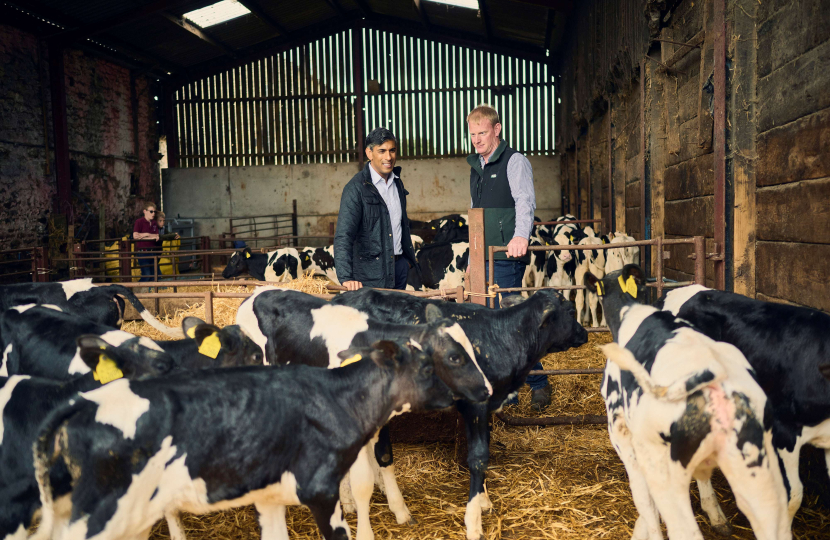
The farmers who supply the milk which makes Wensleydale cheese special held their annual get together and were joined by Rishi.
The Wensleydale Milk Producer Group’s summer social, farm walk and barbecue was held at Low Gill farm, Aysgarth, the home of the Dinsdale family and their herd of 180 Holstein-Friesian cows and followers.
The family, who have farmed at the 500-acre Low Gill for five generations, installed the anaerobic digester in November last year.
The 22kw plant supplied and installed by Bioelectric generates power for the farm’s operations and the surplus is sold back to the national grid.
The digester takes the slurry and breaks it down through bacterial action producing biogas, a mix of methane and carbon dioxide. After cleaning and filtering, the gas is used to power a combustion engine to produce electricity and heat.
What remains of the slurry – the digestate – is used as a nutrient-rich fertiliser with more absorbable nitrogen and less organic matter, reducing run-off risks and protecting local water courses.
Mark Dinsdale said it was a major investment costing £250,000. The farm had received a £50,000 government grant towards the outlay and were looking at a payback period of five to seven years.
He said: “Instead of treating our slurry as waste, the anaerobic digester turns it into useful resources – clean energy and a good fertiliser.”
Mr Dinsdale said his family had enjoyed hosting the group’s farmers and Mr Sunak. A charity collection held at the event had raised £180 for the Sir Robert Ogden Macmillan Cancer Centre at the Friarage Hospital, Northallerton.
Rishi said: “It was great to see a farm-scale anaerobic digestion system perform in a real-world dairy setting. It underscored the importance of practical, sustainable innovation in UK agriculture and I applaud the Dinsdales for their investment in the future of their business.”
Andrew Chapman, chair of the Wensleydale Milk Producer Group, said it had been a great event and thanked Mr Sunak for attending.
“I would also thank the Dinsdale family for hosting us and showing us the digester,” he added. “It was very impressive and, while not suitable for all dairy operations, it was clear to see how it can be a win-win in reducing emissions and producing green energy.”